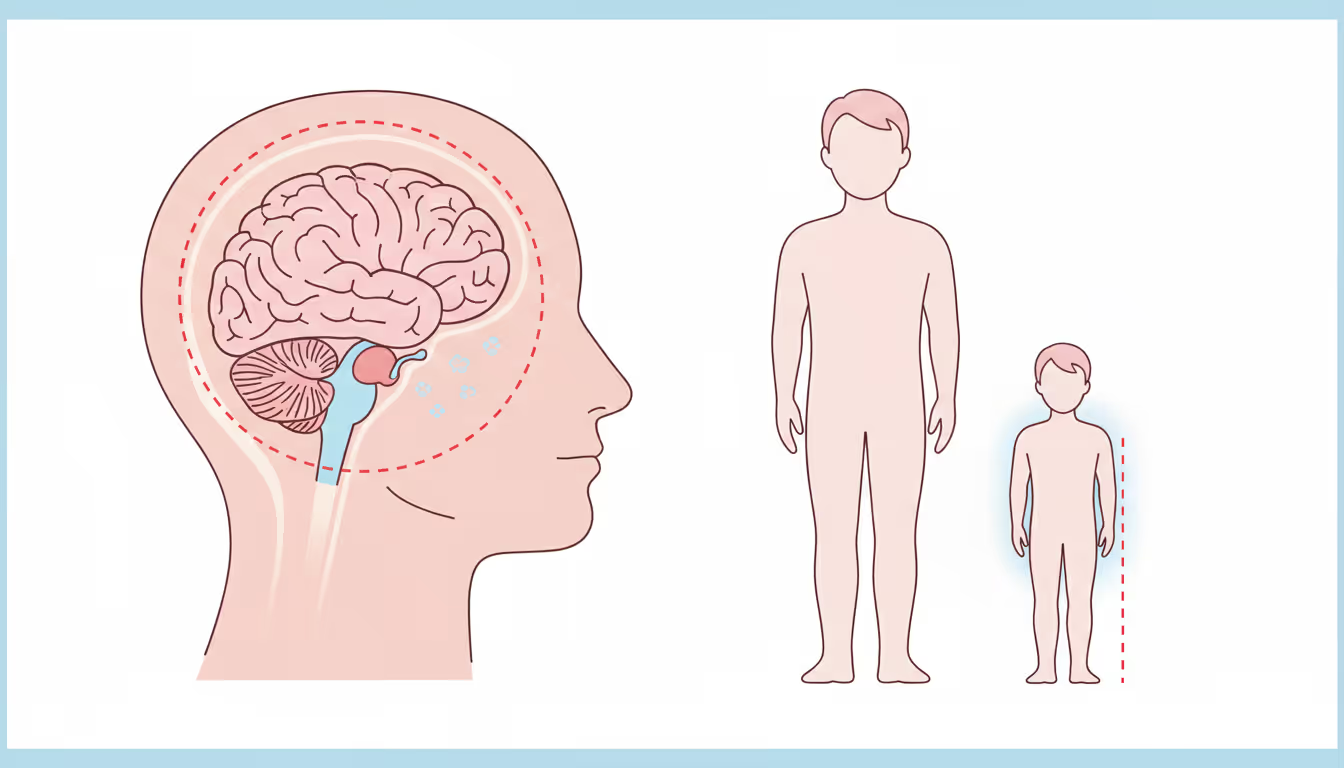
Panhypopituitarism refers to the insufficient or absent production of hormones due to various factors. The anterior pituitary is responsible for producing several hormones, including thyroid-stimulating hormone (TSH), adrenocorticotropic hormone (ACTH), luteinizing hormone (LH), follicle-stimulating hormone (FSH), growth hormone (GH), and prolactin (PRL). This condition, also known as hypopituitarism, can be present at birth or develop later in life, with the acquired form being more common than the congenital type. Symptoms may include fatigue, weight loss, reduced sex drive, infertility, cold sensitivity, decreased facial or body hair in men, and facial puffiness. Acquired hypopituitarism can result from pituitary tumors, head injuries, radiation treatments, certain medical conditions, brain infections, or brain surgery. Pituitary dwarfism is a type of dwarfism caused by a deficiency in growth hormone, typically due to pituitary gland dysfunction. Children with this deficiency may grow normally for the first few years but then lag behind their peers in height while maintaining normal body proportions. Treatment involves administering human growth hormone through injections. This condition is also called hypopituitary dwarfism or growth hormone deficiency.




